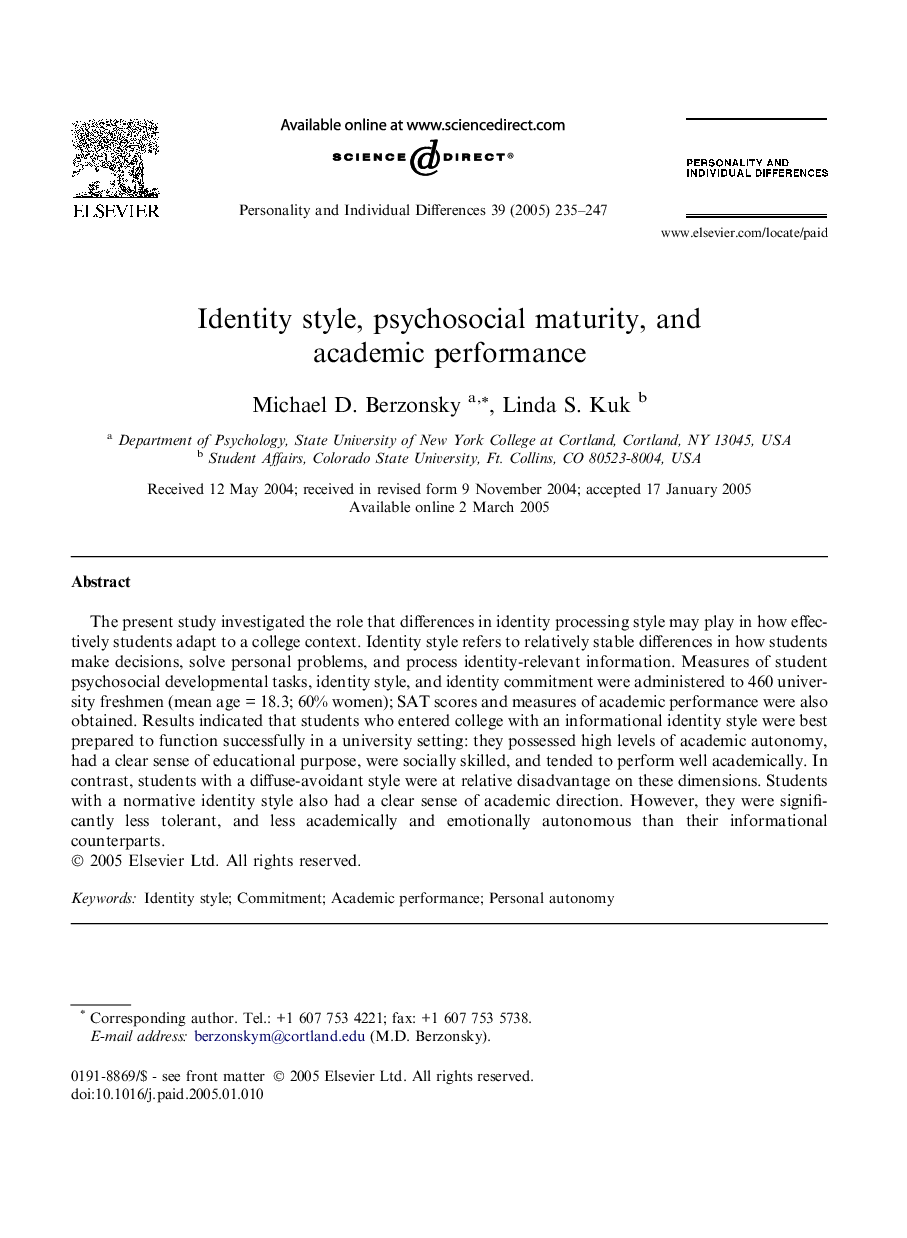| Article ID | Journal | Published Year | Pages | File Type |
|---|---|---|---|---|
| 10441187 | Personality and Individual Differences | 2005 | 13 Pages |
Abstract
The present study investigated the role that differences in identity processing style may play in how effectively students adapt to a college context. Identity style refers to relatively stable differences in how students make decisions, solve personal problems, and process identity-relevant information. Measures of student psychosocial developmental tasks, identity style, and identity commitment were administered to 460 university freshmen (mean age = 18.3; 60% women); SAT scores and measures of academic performance were also obtained. Results indicated that students who entered college with an informational identity style were best prepared to function successfully in a university setting: they possessed high levels of academic autonomy, had a clear sense of educational purpose, were socially skilled, and tended to perform well academically. In contrast, students with a diffuse-avoidant style were at relative disadvantage on these dimensions. Students with a normative identity style also had a clear sense of academic direction. However, they were significantly less tolerant, and less academically and emotionally autonomous than their informational counterparts.
Related Topics
Life Sciences
Neuroscience
Behavioral Neuroscience
Authors
Michael D. Berzonsky, Linda S. Kuk,
